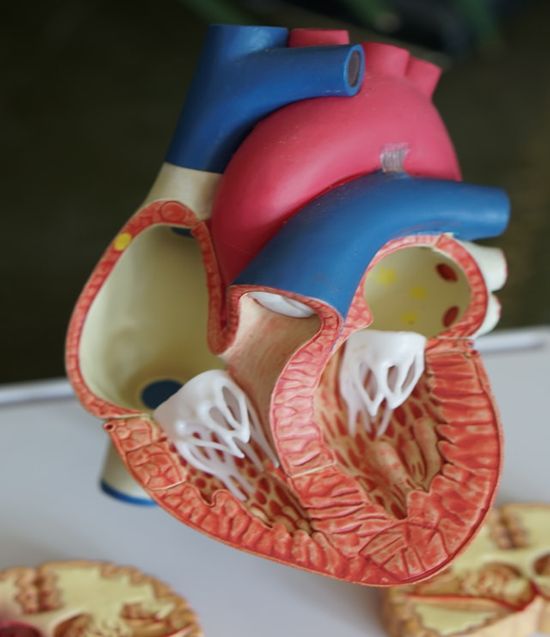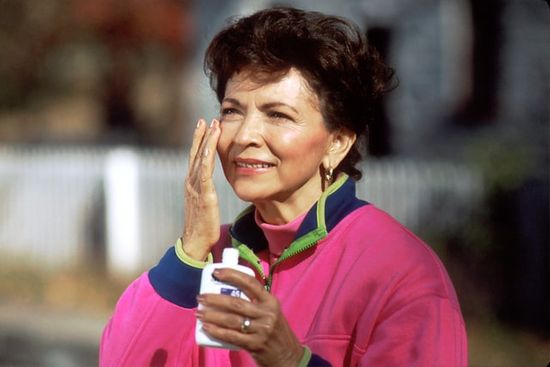Yes, There Are Health Benefits of Sunlight
Despite the bad reputation it’s gotten, sunlight is generally associated with positivity, as shown by songs like “You Are My Sunshine,” or phrases that refer to delightful people as having a “sunny disposition.” There’s a reason sunlight so often represents cheerfulness, joy, and energy. And though caution may be needed in some areas, sunlight indeed provides many health benefits.
That’s why Seventh-day Adventists talk about the importance of adequate sunlight in our eight principles for wellness. The sun’s rays trigger our bodies to make vitamin D—a vital nutrient—while also providing us with many other physical, mental, and spiritual benefits.
So let’s look at:
- Why you need sunlight for optimal health
- Why Adventists emphasize sunlight
- How much sunlight we need
- How to get more sunlight
Why you need sunlight for optimal health
Sunlight is probably best known for stimulating the production of vitamin D in our bodies. But it also offers many other benefits that may or may not be associated with vitamin D:
- Decreased risk of sickness
- Decreased risk of cancer
- Improved blood pressure
- Better sleep
- Better mood
- Improved ability to think
- Balanced hormones
- Better skin health
We’ll explore each one.
1. You’ll get vitamin D1
Vitamin D is an important hormone that the skin produces when it’s exposed to the ultraviolet (UV) rays of the sun. This vitamin helps the body absorb calcium.
Not having enough vitamin D contributes to many problems with bone health: osteoporosis, rickets, osteomalacia, and weak teeth.
A study published in the American Journal of Clinical Nutrition also noticed a link between vitamin D deficiency and muscle weakness. Older individuals with low vitamin D levels had a greater risk of falling than those with enough vitamin D.2
2. You’ll get sick less
Vitamin D may boost the immune system too. People with higher amounts of it in their blood had a lower chance of getting the flu or other viruses. And even those who did get sick had much less severe cases.3
Researchers at the University of Copenhagen found that vitamin D helps stimulate certain kinds of immune cells called killer T cells. Without vitamin D, these cells “remain dormant” instead of fighting bacteria and viruses.4
So if you want to mobilize your body’s defense systems, make sure you’re getting sunlight!
Aside from boosting the immune system, sunlight can also act as a disinfectant. It’s the reason your grandma used to hang her laundry outside to dry: Sunlight kills bacteria.5
3. You’ll reduce your cancer risk6
Again, we have vitamin D to thank for at least part of this benefit. Spending time in the sun may decrease the risk of dying from cancer because vitamin D seems to stop the growth of cancer cells.
Vitamin D also may decrease the risk of colon, pancreatic, ovarian, and breast cancer.
4. You’ll improve your blood pressure
In response to the sun, the cells produce a chemical called nitric oxide, which opens up the blood vessels allowing for easier blood flow.7
A study published in the Journal of the American Heart Association noted that spending time in the sun seemed to lower the blood pressure levels of participants.8
5. You’ll sleep better
You know what it’s like to try sleeping in only to have the sun stream through the window into your eyes. That might not help you sleep.
But getting sunlight during the day will. Why is this? It’s because it helps your body produce melatonin, a hormone that regulates your circadian rhythm and sleep during the night. Artificial light, though, does not have the same effect as natural light.9
6. You’ll feel better
Ever heard of SAD? It stands for seasonal affective disorder, a “type of depression that’s related to changes in season.”
People can get SAD when they don’t have enough sunlight or daylight exposure.10 It’s a common occurrence for people who live in higher latitudes, especially near the arctic circle where the sun emerges for only a few hours during the day in the winter.11
 A study by Brigham Young University noticed something similar: people experienced greater “mental health distress” during the winter months when there was less time between sunrise and sunset.12
A study by Brigham Young University noticed something similar: people experienced greater “mental health distress” during the winter months when there was less time between sunrise and sunset.12
One of the primary ways to prevent or cope with SAD is to get more natural light or use a light box that mimics natural light.
But for the majority of us that don’t live in those darker regions, we can take advantage of sunlight year-round. Especially its mood-boosting effect.
As light enters the eyes, it triggers the production of neurotransmitters, chemicals in the brain that affect many aspects of the body, including mood. One of these is serotonin—known as the happy hormone.13
But turns out, it helps your brain in other ways too.
7. You’ll think better
We all want to be more alert, think more clearly, and focus better. Sunlight might play into that as well!
Spending time in the sun increases the blood flow to the brain and boosts the production of neurotransmitters, which help to pass messages between nerve cells in the brain.14
8. Your hormones will be more balanced
Spending time in the sun may help with hormone balance—for both men and women.
Men who spent one hour in the morning sunlight had an increase in luteinizing hormone, a chemical in the body that’s important for reproductive health. Women likewise experienced the benefits because sunlight helped balance their menstrual cycles.15
9. It may help your skin
Some evidence shows that sunlight may help with skin conditions like psoriasis, eczema, acne, and jaundice. Dr. Melissa Piliang, a dermatologist at the Cleveland Clinic, cautions against overdoing sunlight exposure but says that light therapy may improve these problems.16
Always consult your doctor or a medical professional when considering natural treatment options, such as sun exposure.
Now that we know what sunlight can do for us, let’s learn about the other reasons Adventists care about it.
Why do Adventists emphasize sunlight?
Besides scientific research that confirms the many physical and mental benefits of sunlight, Adventists consider biblical principles as well.
Sunshine is mentioned right in the Creation account—God gave the sun as the primary light source for the world and called it “good” (Genesis 1:14–18). And as its Creator, He controls and commands it (Job 9:7; Isaiah 38:8).
The Bible even speaks of the pleasantness of the sun (Ecclesiastes 11:7) and uses it as a metaphor for God:
“For the Lord God is a sun and shield; the Lord bestows favor and honor” (Psalm 84:11, ESV).
Ellen White—a key founder in the Adventist Church who wrote large amounts on the topic of health—also talked about the importance of sunlight. She called it a “blessing from heaven” and “one of nature’s most healing agents.”17
Notice what she says in this statement:
“Pure air, sunlight, abstemiousness, rest, exercise, proper diet, the use of water, trust in divine power—these are the true remedies.”18
Thus, long before scientific research confirmed the benefits of the sun, she encouraged people to spend time outdoors in “the glad sunshine” and to allow light into their homes.19
Her counsel and the Bible’s comforting words are reasons Adventists actively promote this health principle today.
But you may be wondering, How much is too much?
How much sunlight do we need?

Moderate sun exposure is good for us, but we need to make sure we don’t get too much.
Dr. Neil Nedley, an award-winning physician who runs the Nedley Depression and Anxiety Recovery program, talks about the importance of sunlight in his book, The Lost Art of Thinking. He offers the following recommendations for getting enough sun:
Each day, get 5 to 30 minutes in the sun between 10 a.m. and 4 p.m. without wearing sunscreen. Make sure that your face, arms, hands, and legs are exposed to the sun. People with fair skin will need less time, while those who are older and have darker skin need to spend more time in the sun to get the same amount of vitamin D.20
There’s reason to be careful about exposure to the UV light of the sun, though. Getting too much sun can lead to:
- Sunburn
- Wrinkles and early aging
- Skin cancer
If you plan to spend many hours in the sun, wear proper sun protection—a hat, a sunscreen of SPF 15 or higher, etc.
But most of us have the opposite problem: we don’t get enough sunlight! What can we do about that?
What are ways to get more sunlight?
 Here are some ways Adventists get in those 5 to 30 minutes of sunlight. They just might work for you too!
Here are some ways Adventists get in those 5 to 30 minutes of sunlight. They just might work for you too!
- Exercising outdoors—whether jogging, walking, going for a bike ride, or doing some other form of enjoyable exercise
- Working in the garden or yard
- Allowing light indoors—opening up those curtains and blinds
- Eating a meal outside or having a picnic with a friend
- Standing or sitting in the sunshine for a short time
If you live in a region of the world that gets significantly less sunlight during certain parts of the year, you may want to try the following tips to continue experiencing the benefits of sunlight:
- Being intentional about finding and sitting in the sun whenever possible, particularly in the morning
- Getting light therapy from a light box or exposing yourself to blue light for 15 to 20 minutes in the morning21
- Taking a vitamin D supplement (be sure to check with your doctor first)
Let some sunshine in!
God created sunlight to be a blessing for humans. It provides us with warmth, light, and health benefits.
But in our broken and imperfect world, we also have to be careful of the dangers of the sun. Too much sun can cause damage to our bodies.
Even so, this doesn’t mean we should hide from it. If we do, we’ll miss out on the good it can do for us!
So make sure to get in that 5 to 30 minutes of sunshine each day. And as you bask in the warm rays, let them remind you to seek God’s warm and loving presence in your life too!
Want to learn more about Adventists and healthy living?
- “Vitamin D: Fact Sheet for Health Professionals,” National Institutes of Health. [↵]
- Janssen et al., “Vitamin D Deficiency, Muscle Function, and Falls in Elderly People,” American Journal of Clinical Nutrition, 75 (4), 2002, pp. 611–615. [↵]
- Hendrick, Bill, “Vitamin D May Cut Risk of Flu,” eMedicineHealth, June 16, 2010. [↵]
- “Vitamin D Crucial to Activating Immune Defenses,” ScienceDaily, March 8, 2010. [↵]
- Holland, Kimberly, “Want to Kill Dangerous Bacteria? Open Your Blinds,” Healthline, Nov. 28, 2018. [↵]
- Holick, Michael, “Vitamin D, Sunlight, and Cancer Connection,” Anticancer Agents Med Chem, 13(1), 2013, pp. 70–82. [↵]
- Holliman, Graham, “Ultraviolet Radiation-Induced Production of Nitric Oxide,” Scientific Reports, Sept. 11, 2017. [↵]
- “Could Sunshine Lower Blood Pressure? Study Offers Enlightenment,” American Heart Association News, Feb. 28, 2020. [↵]
- Nedley, Neil, The Lost Art of Thinking (Nedley Publishing, Ardmore, OK, 2011), p. 239. [↵]
- “Seasonal Affective Disorder: More Than the Winter Blues,” American Psychological Association, 2014. [↵]
- Haggag et al., “Seasonal Mood Variation,” Acta Psychiatrica Scandinavica, 81(2), pp. 141–145. [↵]
- Moss, Rachel, “Sunshine Improves Mental Wellbeing, with Dark Months Linked to Emotional Distress, Study Finds,” HuffPost, April 11, 2016. [↵]
- Nedley, p. 238. [↵]
- Kent et al., “Effect of Sunlight Exposure on Cognitive Function Among Depressed and Non-Depressed Participants,” Environmental Health, 8(34), 2009. [↵]
- Nedley, p. 239. [↵]
- “How the Sun Can Benefit Some Skin Conditions,” Cleveland Clinic, July 2, 2021. [↵]
- White, Ellen, Testimonies for the Church, vol. 2 (Pacific Press, Mountain View, CA, 1868), pp. 530, 527. [↵]
- White, Ellen, The Ministry of Healing (Pacific Press, Mountain View, CA, 1905),p. 127. [↵]
- Ibid., pp. 264, 275. [↵]
- Nedley, p. 246. [↵]
- Ibid., p. 240. [↵]
Questions about Adventists? Ask here!
Find answers to your questions about Seventh-day Adventists
More Answers
The Health Benefits of Fresh Air You Should Know About
The Health Benefits of Fresh Air You Should Know About“When you can’t breathe, nothing else matters,” the American Lung Association tells us. And while that’s true, the kind of air you’re breathing will determine the health benefits you experience. Breathing fresh...
What Do Seventh-day Adventists Choose to Eat?
What Do Seventh-day Adventists Choose to Eat?Food blogs overwhelm the internet; food fads are all the rage; and copycat and healthy versions of food are the subject of many a get-together. Eating—and eating the best way—is a big deal. And everybody has a different...
10 Incredible Ways Sunlight Can Improve Your Health
10 Incredible Ways Sunlight Can Improve Your HealthAre you concerned about sunlight’s negative effects? You might be the one who lathers on the sunscreen and covers up when you go outside. Or maybe you avoid being outside as much as possible. You might be surprised,...
Why Is Water So Important?
Why Is Water So Important?We all know that water is a substance we can’t live without. It quenches our thirst and keeps us hydrated on the inside. And it’s necessary for hygiene and cleansing on the outside too. But did you know that the cleansing properties of water...
Ellen White’s Writings and the Adventist Health Message
Seventh-day Adventists are known for their emphasis on healthy living. And Ellen G. White was a significant influence in the development of this priority and practice among Adventists.
Health Clinics
Ellen White and Adventist Healthcare—Ahead of Their Time Medical care in the mid-1800s was primitive, to say the least. Basic concepts we take for granted—such as proper handwashing or recognizing the dangers of bloodletting—were nonexistent. And doctors often had...
What Did Ellen White Teach about Vegetarianism?
What Did Ellen White Teach about Vegetarianism?One thing you might have heard about Seventh-day Adventists is their emphasis on a vegetarian lifestyle. If you’re wondering why that is, it goes back to our church’s humble beginnings: As Adventists studied the Bible,...
How Ellen White’s Teachings Can Improve Your Health
How Ellen White’s Teachings Can Improve Your Health Healthcare in the nineteenth century was said to leave “more disease than it took away” with its use of bloodletting and “medicines” like mercury and arsenic.1 As people questioned these methods, new approaches...
Change Your Perspective on Life with These 5 Mindsets
5 Biblical Mindsets to Change Your Life for the Better Sometimes, life is just plain hard. There’s no way around it. So would thinking about things differently really change anything? Our perspective on life, and everything it throws at us, affects more than we’re...
Bible Promises for When You’re Worried or Fearful
Bible Promises for When You’re Worried or Fearful The Bible is full of beautiful promises that can comfort us in a variety of situations. They can give us hope when we are hopeless, make us feel grateful for God’s love, and comfort us when we’re grieving or suffering....
12 Practical Ways to Overcome Worry
12 Practical Ways to Overcome Worry DISCLAIMER: This content is for informational purposes only. It does not constitute any professional medical advice and is not intended as a substitute for professional mental health therapy. It’s easy to get stuck in a cycle of...
How the Bible Talks About Worry, Fear, and Anxiety
How the Bible Talks About Worry, Fear, and Anxiety Worry and fear are the ingredients of anxiety. It’s easy to see how the world isn’t perfect—and the anticipation of a bad event or experience (that may or may not even happen) can end up draining the peace and...
How to Calm Anxious Thoughts, Using the Bible
How to Calm Anxious Thoughts, Using the Bible You were expecting a phone call from your daughter half an hour ago, and she still hasn’t called. She’s also not answering your calls. You feel your heart thumping as your thoughts race: What if she’s been in a car...
What You Should Know About the Adventist Health Studies
What You Should Know About the Adventist Health StudiesYou may have heard that Seventh-day Adventists care about health. But what you may not know is that Adventists have been the subjects of long-term research into lifestyle and health. Since 1958, researchers from...
Why Your Body Needs Rest for Optimal Health
Why Your Body Needs Rest for Optimal HealthStruggling to think straight? Wondering why you can’t remember that important tidbit you heard earlier today? Feeling like your emotions are about to explode? These are just some of the symptoms that can reveal your need for...
The Seventh-day Adventist Diet: One of Our Key Longevity Secrets
The Seventh-day Adventist Diet: One of Our Key Longevity SecretsOats, avocados, lentils, tofu—probably not what you first think of in a standard American diet. But if you show up at the home of an Adventist, chances are you may be served one of these staples. Out of a...
Why You Need Fresh Air
Why You Need Fresh Air“When you can’t breathe, nothing else matters,” the American Lung Association tells us. We couldn’t agree more! Breathing in clean air is an essential part of caring for our bodies, which God has given us. Together with other health principles,...
Sabbath Meal
Everything You Need to Know About Sabbath MealsFor Seventh-day Adventists, sharing a Sabbath meal with friends and family is one of the most special and memorable parts of the Sabbath. That’s why we want to share with you all about Sabbath meals and why they’re such a...
Adventists and Healthy Living
Adventists and Healthy LivingWhat’s the Adventist “Health Message” All About? One thing Seventh-day Adventists are known for is their emphasis on living healthy lives. Since our bodies are living temples of the Holy Spirit (1 Corinthians 6:19, 20), we strive to stay...
Water’s Importance—Physical Benefits and Spiritual Applications
Water’s Importance—Physical Benefits and Spiritual Applications We all know that water is a substance we can’t live without. Not only does it quench our thirst and keep us hydrated from the inside, but it’s necessary for hygiene and cleansing on the outside as well....
How Important is a “Day of Rest?”
How Important is a “Day of Rest?” Why God Created a Day for Downtime by Martin Casper Do you ever experience the feeling of complete overload? Do you feel like the only way you can get ahead is by slamming it 24/7? I hear these types of comments more and more...
7 Reasons Why a Day of Rest is Important
7 Reasons Why a Day of Rest is ImportantWe live in a fast-paced world. It seems as if success is measured in how much you can do in a short amount of time. (Extra points for the service or product that is available 24/7). The idea that we will be more successful if we...
How do Adventists choose what to eat?
How do Adventists choose what to eat?Every day, parents go through the ritual of getting their kids to eat what is healthy and good while trying to steer them away from what can hinder the growth of their developing bodies. Nutritionists work with their clients to...
How Can I Have a Better Marriage?
Is it possible to have a happy marriage?
How do Adventists make movie and music choices?
How do Adventists make movie and music choices?Cinema has come a long way since the first clips of motion pictures came to light in 1878. As the decades rolled on, film and music producers have created rivers of movies and albums for the masses. Today, watching movies...
Why are many Adventists Vegetarian?
Why are many Adventists Vegetarian?The diet intended for man is outlined in Genesis 1:29, “And God said, ‘See, I have given you every herb that yields seed which is on the face of all the earth, and every tree whose fruit yields seed; to you it shall be for food.’”...
Didn’t find your answer? Ask us!
We understand your concern of having questions but not knowing who to ask—we’ve felt it ourselves. When you’re ready to learn more about Adventists, send us a question! We know a thing or two about Adventists.























